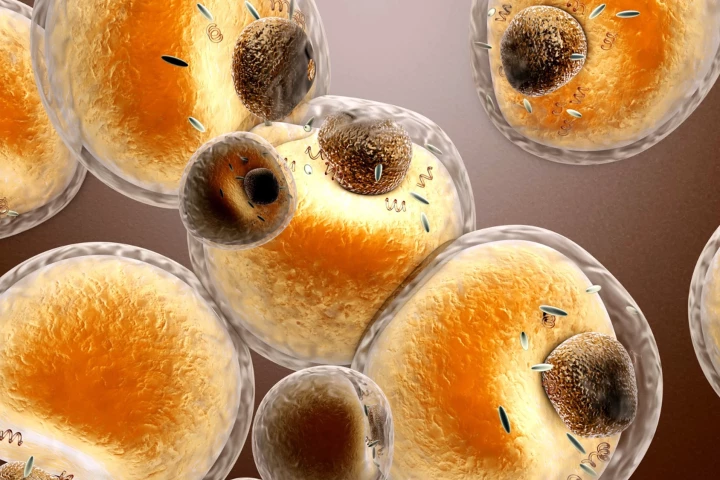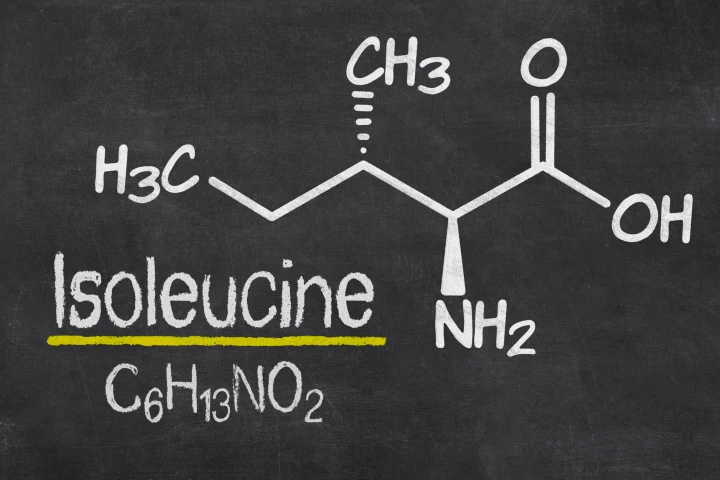Amino Acids
-
Forget carrots. Researchers have determined that one of the most common amino acids has the power to keep retinas thick and healthy. The finding has the potential to fight vision loss and blindness through this newly discovered metabolic pathway.
-
Byproducts from gut bacteria breaking down tryptophan, a dietary amino acid, can restore hormone-secreting gut cells reduced by obesity, a new study found. It opens the door to a natural, side-effect-free alternative to GLP-1 drugs like Ozempic.
-
When the skin is injured, a stem cell’s survival instincts kick in. New research reveals that a simple amino acid, serine, helps push stem cells to abandon hair growth in favor of wound healing, opening the door to new therapies for chronic wounds.
-
Cutting a single amino acid from the diet caused rapid, drastic weight loss in mice by converting white fat into calorie-burning brown fat. The study reveals a powerful new mechanism for weight loss that doesn’t rely on eating less and moving more.
-
Reducing our intake of a single amino acid called methionine, which we get from the food we eat, could help protect against disease and promote healthy aging. Now, scientists have a better method for studying the effects of this critical compound.
-
By eliminating the essential amino acid cysteine from the diets of mice, and disabling their ability to produce it, scientists have induced rapid and dramatic weight loss. The technique opens a new pathway to explore in weight-loss science.
-
A new study has identified one of the reasons why cancer frequently spreads from elsewhere in the body to the lungs: an amino acid called aspartate. The findings improve our understanding of cancer and open the door to new treatments for metastatic disease.
-
If you've never heard of fox nuts, you'd be forgiven for assuming that they don't seem particularly palatable. But they're actually starchy seeds harvested from an aquatic lily that boast vast health benefits. And no foxes are harmed in the process.
-
Venus may be a hellscape, but there’s a chance some forms of life could evolve there. A new MIT study has now found that the building blocks of life are surprisingly stable in highly concentrated sulfuric acid – which Venus’ clouds are made of.
-
Research found that reducing the intake of a single amino acid by two-thirds improved the lifespan, weight, and health of middle-aged mice without requiring a drop in calorie intake. Limiting isoleucine intake may be a key to healthy aging.
-
Aging is an inevitable part of living that many try to roll back. A new study found that a naturally occurring amino acid slowed the aging process in mice, monkeys and worms. And they think it may play a role in human aging, too.
-
Science often involves sifting through enormous amounts of data, a task that’s overwhelming for humans but a piece of cake for AI. A new platform dubbed BacterAI can conduct 10,000 experiments per day to teach itself – and us – more about bacteria.
Load More











